Nigeria’s mounting economic challenges have always been a source of worry for its citizens and uncomfortable embarrassments to many others for decades. We talk and complain about it constantly, and in election cycles as we have now, politicians keep chiming in with their opinions on how to deal with these difficulties. But lacking in these conversations is a consensus among the elites on what our national goal should be and how best to approach our developmental difficulties. An agreement among the critical segments of the society on how best to tackle its developmental agenda is so important that no nation can ever make progress without it. It is the major reason Nigeria has remained stunted, and is derisively being dubbed as a ‘’sleeping giant of Africa.’’
Nigeria ought to be a wealthy country, given its huge oil, gas and mineral resources; vast fertile land, and young and talented population. Yet, according to the IMF and World Bank, Nigerians are poorer today than they were just a decade ago and 40% of our citizens live on less than $1.9 (N1,200) a day.
Join our WhatsApp ChannelAware of the centrality of elite consensus as a critical success factor in national development, the Aig-Imoukhuede Foundation this week brought in Prof Stefan Dercon, an expert in that area, from Oxford University, into the country to hold a conversation with hundreds of the Nigerian elites and members of the privileged class. Dercon is a professor of Economic Policy at Blavatnik School of Government, University of Oxford, former Chief Economist for DFID and Development Policy Advisor to successive UK Foreign Secretaries. In his book, ‘’Gambling on Development: Why some Nations Win and Others Lose’’, Prof Dercon argues that the answer to a country’s development lies not in a specific set of policies, but in a key development ‘bargain’, where the elite shift from protecting their own positions to gambling on growth-based future for their nation. He explores why some countries have managed to settle on elite bargains favoring growth and development, while others, such as Nigeria, have not, leading to deteriorating socioeconomic conditions.
The conversation, held at the posh Wheatbaker Hotel, Ikoyi, Lagos, was chaired by former President Olusegun Obasanjo, while former FIRS Chairperson, Ifueko Okauru and former INEC Chairman, Prof Attahiru Jega were the discussants. Although the event coincided with the presentation of National Awards by President Buhari to some 400 Nigerians in Abuja, it was nevertheless well attended to the full capacity of the hotel’s conference hall. Many others joined through Youtube and Zoom.
In his introductory remarks, the Chairman of the Aig-Imoukhuede Foundation, Aigboje Aig-Imoukhuede, spoke of how nervous he has been about the nation’s troubled trajectory, and how strikingly similar these feelings are similar to the ones he had when he was preparing to buy Access Bank 20 years ago. ‘’My nervousness about our country is largely in the sense of anticipating what we can do to save our country and how we can build a consensus of the important stakeholders around it. In the foundation, we have always focused on capability and competence, but these are not enough to rebuild the nation of our dream. We must come with a consensus of the critical stakeholders on how we can build a prosperous and enduring nation. If we don’t reach a consensus on how best to develop Nigeria, the future of the country will continue to be dire; and my wife and I can’t live with the possibility of a failed Nigeria’’, said Aig-Imoukhuede, his voice filled with emotions. Aigboje and his wife, Ofovwe, cofounded the foundation which is focused on building the capacity of the nation’s public sector through a number of initiatives.
Former President Obasanjo, who is also the Chairman of the foundation’s Leadership Council, took off from there and emphasized the importance of the consensus among the elite, so that we can keep doing ‘’what is right consistently and continually’’ He recalled his experience with Lee Kuan Yew, former Prime Minister of Singapore, some years ago. He had led some 40 young African leaders to visit the former Singaporean leader. ‘’For three days we met and brainstormed with Lee and his team, and at the end of the three days, the young leaders were eager to learn the Singaporean magic from the former Prime Minister’’, according to Obasanjo. ‘’There is no magic wand’’, Yew answered, adding ‘’We did a few things right; and we continued to do that right’’.
I was pleased to see Obasanjo in person after a long while. He looks well and alert for an 85-year-old, and sounds mentally fit, coherent and articulate, his voice, still strong and coarse, and not betraying any signs of weariness. It is my first time of seeing him since I bumped into him in Hilton elevator 15 years ago. On Nigeria’s protracted problems, the former President said, ‘’we seem not to take national development and growth seriously, but only individual development’’. The former President recalled that ‘’in Ikoyi up till 1975, there were no fences around the houses and homes. National security was reasonably good and so was individual security as well. Today, we are competing with one another on whose prison walls around the homes are taller’’, eliciting laughter and applause. Aig-imoukhuede had earlier introduced Obasanjo by noting that the three occasions the country seemed to have made remarkable progress were when the Otta farmer was at the helm of our affairs.
As Obasanjo was speaking, I felt a gentle brush on my shoulder, and turned around to see Mr. Peter Obi, the Labour Party presidential candidate, walking in gently to avoid causing distractions. He sat in the front row directly in front of me with Prof Kingsley Moghalu, CBN former Deputy Governor who now runs and NGO called, Institute for Governance and Economic Transformation; Mr. Paschal Dozie, elder statesman and founder of Diamond Bank and Dr. Okey Enelamah, former Minister of Industry, Trade and Investment. This was my first time of seeing Obi since we left UNN together in the mid-1980s. There was a host of other professionals, businesspeople, politicians, etc.
I looked around the hall, and noticed that many people were taking notes. Obi himself was typing diligently on his handheld device as Obasanjo was winding down his presentation. ‘’We have had a few rare moments of elite consensus, when the elite had stuck out their neck for national development’’ the former President concluded, and one of them was when they formed the G34 Group…’’. This was the group that was established soon after the death of Gen. Sani Abacha and MKO Abiola by some eminent persons and led by the late former Vice President, Dr. Alex Ekwueme. It later transformed into the PDP. It was one of the elite pressure groups that the then UN Secretary General Kofi Anan met when he visited Nigeria during the fast-paced transition government of General Abdulsalami Abubarkar to encourage the country to stay the course. Anan later poured encomiums in his memoires on G34 for its roles in stabilizing the polity in those uncertain days.
Obasanjo then invited Prof Dercon to speak; his being the main act of the day. With 12 slides replete with charts and statistics, the professor started off with some sobering numbers. In 1990, 18 countries had both more than 8 million people and more than 20% of its population in extreme poverty. Of these 18 million, only Ghana and Ethiopia had halved poverty by 2018; but seven countries more than doubled the number of people in extreme poverty – Angola, DRC, Kenya, Madagascar, Malawi, Nigeria and Zambia.
He then drove home the point that three key steps are necessary to achieve development through elite consensus or elite bargain: 1). The country must genuinely seek an elite coalition for peace and for stability; 2). The country should be self-aware as a state; not ideologically that the state should lead or not, but the state should appreciate its weaknesses and its strengths; 3). The country should possess systems of internal or external accountability, as the basis for learning.
Dercon identified three key factors that matter in development: a). A country’s history. Here, he acknowledges that colonialism really had debilitating impacts on African countries such as DRC. He noted that natural resources have not helped Africa much; rather, it is the historical experiences of each country and the sensible policies they consistently pursue that conduce to growth and development; (b). A Long-term vision of the country laced with a long spell of peace and development is also very important. Ghana is a good example. It is not also all about democracy, but a system of government that works for a particular country. A country must therefore be self-aware that it can achieve what it sets out to do based on a system of meritocracy; (c). Stability and continuity are another important factor that promotes to growth and development. It does not mean that there won’t be failures and mistakes along the way, but the country should pursue learning, accountability, meritocracy and performance. Kenya has shown some promise here. Mrs Ofovwe Aig-Imoukhuede, the executive vice chairman of the foundation, had earlier told us of how she and Aigboje had met Prof Dercon at Oxford during one of their visits and, wowed by the lecture he gave, they asked him to visit Nigeria and share his experience. He did not disappoint.
The other two moderators, Ifueko Okauru, accountant and change management consultant remembered for her transformational leadership at FIRS, and Prof Attahiru Jega, former ASUU Chairman and former INEC chairman who midwifed the 2015 general elections, also made enriching and incisive contributions to the conversation. Jega said that he had read Dercon’s book and commended him for the work. The former INEC Chairman gave a conspectus of the book and promptly took up the Belgian author on two issues. If the elites have to agree on direction of development, how is the elite bargain constructed? Who drives it? Okauru emphasized on the important roles of good leadership and asked Nigerians to be more intentional while electing leaders.
During the questions and answers session that followed, I asked about the impacts of colonialism on Africa’s development, while others probed on the roles of education and finance and national assets on development. Prof. Kingsley Moghalu chose to make a comment in which he identified four components of the Nigerian elites: i). Former President and Heads of States; ii). Top Traditional Rulers; iii). Top politicians and iv). Top businesspeople, including media owners. He suggested that Nigeria’s former presidents and Heads of State should be more involved in the leadership selection process like in Botswana, rather than allowing the process to run ‘’like gambling enterprise’’ as we have now. Moghalu asserted that our elites have failed to arrive at a consensus on Nigeria’s developmental challenges and so the Nigerian youths becoming a strong social force who may ‘’force a change, and if things are not properly managed, it could go out of hand, depending on how the elections go’’. He received a rousing applause. I’m sure that the statement had resonated well with Peter Obi whose main supporters are the young. I tapped him and asked him to make a comment. He declined. ‘’I only came here to learn’’, he said, smiling. After his comments, Prof Moghalu made to leave. It was getting to the end of the National Conversation, but Obasanjo asked him to wait for his own response. The former President noted that the reason former leaders don’t seem to be active in our politics is because the incumbent usually resents the active participations of the formers and if ‘’you push too much, you may experience what happened to Obasanjo’’, an obvious allusion to his 1995 experience with Gen. Sani Abacha. We laughed.
Among other dignitaries at the event were Hajia Binta Ismail of the Nigeria Stock Exchange Group; Hajia Mairo Bashir, a banker; Prof Konyin Ajayi, SAN and Folusho Philips, founder of Philips Consulting and one of the brains behind Nigeria Economic Summit Group (NESG).
The Aig-Imoukhuede Foundation’s National Conversation on Elite Consensus moves to Abuja soon. I hope that the political class, especially the other major presidential candidates, will attend. This certainly is one of the best initiatives from Aigboje, the former banker turned philanthropist, and his wife.
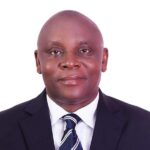
Etim Etim
ETIM ETIM is a journalist, banker and author. He has been a member of the Editorial Board of The Guardian, a Regional Manager in Access Bank and is currently a Columnist in Prime Business Africa, The Cable and Businessday newspapers.
He is also the Chief Executive of Stein Meyer Communications, a major media consultancy and the author of the best-selling book, "Akwa Ibom Heroes: Inside Story of the Fight for Abrogation of Onshore-Offshore Oil Dichotomy" and co-author of another book, "Osinbajo Strides: Defining Moments of an Innovative Leader".

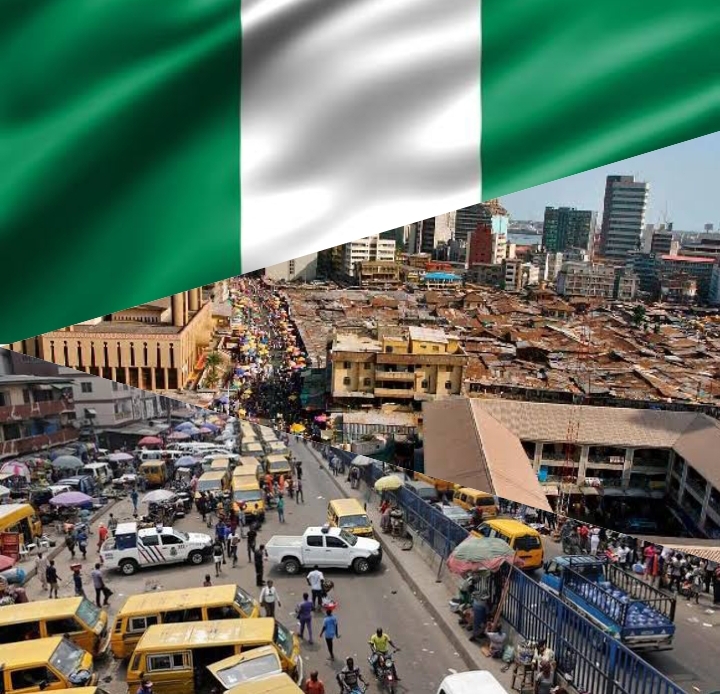



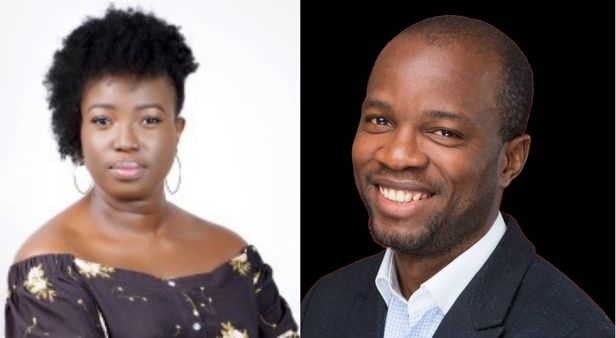
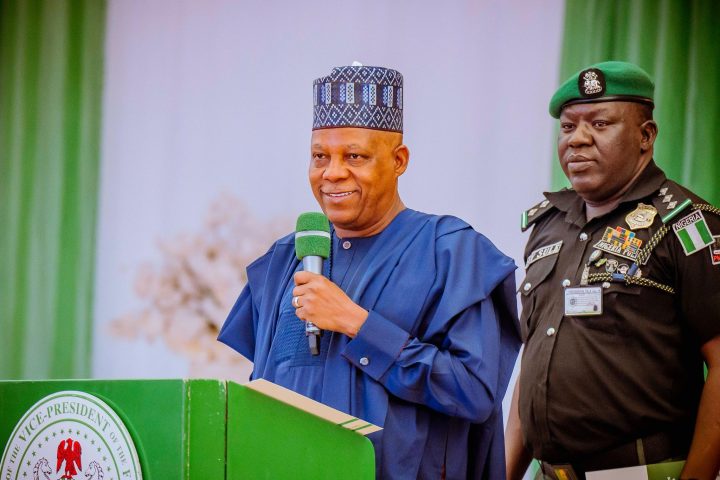







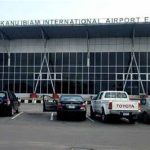

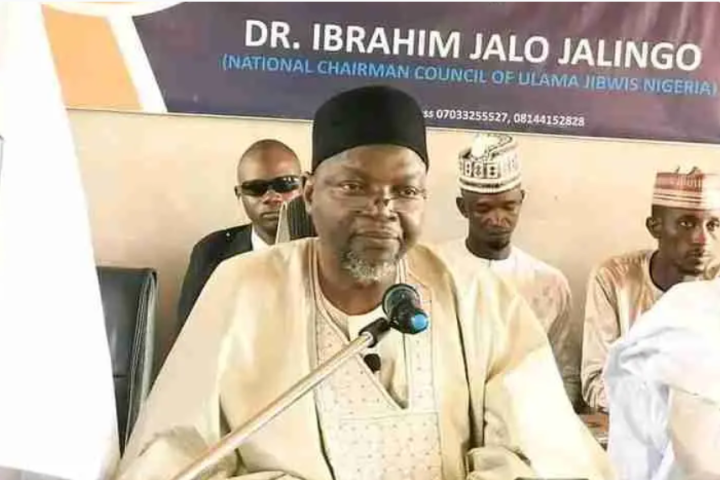
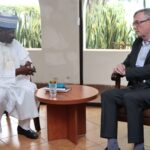
Follow Us